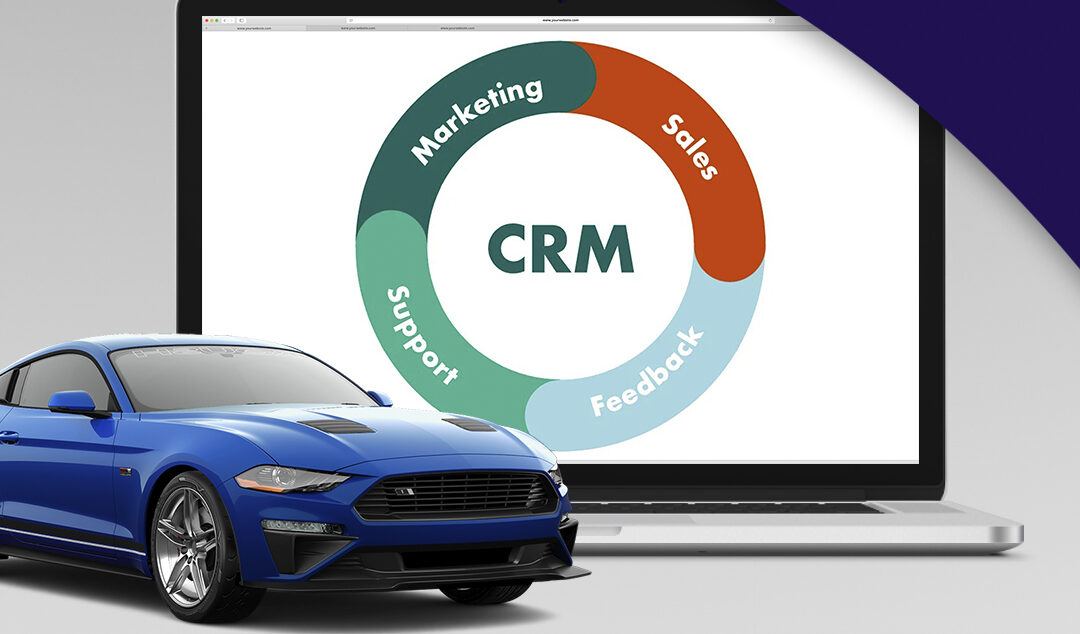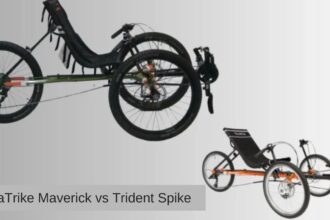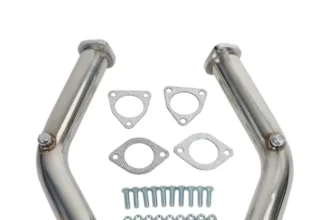Introduction
In today’s fast-paced automotive market, managing leads effectively is more important than ever. Buyers expect quick replies, personalized communication, and a seamless experience from start to finish, and falling short can cost you the sale. That’s where automotive CRM software comes in.
- Introduction
- What is Automotive CRM Software for Car Dealerships?
- How does Traditional Lead Management in Dealerships Work?
- Major Key Differences Between Automotive CRM and Traditional Lead Management
- How Automotive CRM Software Boosts Car Sales
- 1. Lead Prioritization with Scoring
- 2. Automated Follow-Ups
- 3. Centralized Customer Profiles
- 4. Integrated Marketing Tools
- 5. Mobile Access for Sales Teams
- 6. Data-Driven Sales Decisions
- What are the Limitations of Traditional Lead Management in Car Dealerships?
- 1. Leads Slip Through the Cracks
- 2. No Real-Time Updates
- 3. Limited Customer Insights
- 4. Difficult to Scale
- 5. Lack of Performance Tracking
- Real-World Comparison: Automotive CRM vs Traditional Lead Management in Car Dealerships
- Which Automotive CRM Software Should You Choose for Your Dealership?
- Conclusion
If you’re still relying on outdated methods like spreadsheets or sticky notes, chances are you’re missing valuable opportunities. CRM software helps dealerships stay organized, follow up consistently, and close deals more efficiently.
In this blog, we’ll dive into how automotive CRM software compares to traditional lead management. Also, let’s find out which approach truly drives more sales in today’s competitive environment.
What is Automotive CRM Software for Car Dealerships?
A CRM (Customer Relationship Management) tool helps car dealerships build stronger relationships with their customers by keeping everything in one place. Their contact details, service history, vehicle preferences, and past conversations. This way, your sales and service teams always know exactly who they’re talking to and how to help.
Automotive CRM software stores all customer interactions. It is designed specifically for the automotive industry and integrates with your DMS. It schedules test drives, manages service follow-ups, tracks sales pipelines, and automates tasks like lead scoring and appointment reminders. This eliminates the need for spreadsheets, enabling faster follow-ups and more consistent customer communication.
How does Traditional Lead Management in Dealerships Work?
Before Automotive CRM software came into play, most dealerships handled leads the old-fashioned way, manually. Dealerships jotted down customer info in notebooks or spreadsheets, tracked follow-ups by memory, and relied heavily on walk-ins or phone calls to keep the pipeline moving.
This system worked when volumes were low, but in today’s competitive and fast-paced automotive market, it creates more problems than solutions. Leads get lost, follow-ups are missed, and it becomes nearly impossible to personalize communication at scale. Sharing information across teams becomes a headache, especially when everyone is working off different versions of the same document.
Traditional lead management lacks automation, real-time updates, and integration with marketing or inventory tools. This makes it hard to keep up with modern customer expectations. In short, while it might feel familiar, this outdated approach can cost your dealership valuable sales opportunities.
Major Key Differences Between Automotive CRM and Traditional Lead Management
| Feature | Traditional Lead Management | Automotive CRM Software |
| Lead Tracking & Follow-Up | Manual tracking through spreadsheets, sticky notes, or memory leads often falls through the cracks. | Automated follow-ups, task reminders, and lead nurturing to ensure no opportunity is missed. |
| Speed of Response | Slower response times due to a lack of real-time tools. | Instant alerts and communication tools help respond to leads quickly, even after hours. |
| Customer Data Management | Scattered, hard-to-update info; no centralized view of customer history. | Organized, searchable customer profiles with interaction history, preferences, and more. |
| Team Collaboration | Limited visibility between departments; communication gaps are common. | Shared dashboards and notes enable seamless collaboration between sales, service, and more. |
| Sales Reporting & Insights | Basic or manual reporting with limited insight. | Real-time performance reports, lead analytics, and sales forecasting at your fingertips. |
| Scalability | Difficult to scale; systems become messy as your dealership grows. | Easily scales with your team and locations, handling growing lead volumes effortlessly. |
How Automotive CRM Software Boosts Car Sales
CRM automotive platforms aren’t just about organizing contacts, they’re built to convert leads into buyers faster and smarter. Here’s how they directly drive more car sales:
1. Lead Prioritization with Scoring
CRMs rank leads based on their behavior, like website visits or engagement with emails. This helps your sales team focus on the hottest prospects first, increasing the chances of closing a sale.
2. Automated Follow-Ups
Most leads slip through the cracks due to delayed responses. Automotive CRMs automate follow-ups through email or text, keeping prospects engaged even after your business hours.
3. Centralized Customer Profiles
CRMs build a 360° view of every customer’s previous visits, preferred models, service history, and budget. Sales reps walk into conversations prepared, building trust and reducing decision time.
4. Integrated Marketing Tools
From special promotions to service reminders, CRMs allow dealerships to launch targeted campaigns. Personalized offers increase walk-ins and help move inventory faster.
5. Mobile Access for Sales Teams
Many CRM platforms are mobile-friendly, so your team can access lead details, schedule test drives, or make follow-up calls even while on the lot.
6. Data-Driven Sales Decisions
With detailed dashboards and performance analytics, automotive CRM software helps managers identify what’s working and where improvements are needed. This leads to smarter selling strategies and better forecasting.
What are the Limitations of Traditional Lead Management in Car Dealerships?
Traditional methods such as spreadsheets, sticky notes, and basic email tools are no longer efficient for managing the demands of modern dealership operations. Here’s why:
1. Leads Slip Through the Cracks
Manual systems make it easy to lose track of inquiries, especially during busy weekends or after hours. Without a centralized platform, follow-ups get delayed or missed entirely.
2. No Real-Time Updates
If your sales team updates lead information manually, there’s always a risk of outdated or incomplete records. This slows down response times and affects customer experience.
3. Limited Customer Insights
Traditional tools don’t track buyer behavior or preferences. Without this insight, your team can’t personalize communication or recommend the right vehicles confidently.
4. Difficult to Scale
As your dealership grows, managing hundreds of leads manually becomes a nightmare. Traditional systems just don’t offer the flexibility or efficiency needed to handle higher volumes.
5. Lack of Performance Tracking
You can’t improve what you can’t measure. Older lead management methods rarely provide data or reporting tools to evaluate what’s working or what’s not in your sales process.
Real-World Comparison: Automotive CRM vs Traditional Lead Management in Car Dealerships
One of the biggest advantages of using automotive CRM software is that it centralizes all customer information in one place. Whether it’s a shopper who visited last month or someone who just submitted an online inquiry, your team can instantly access their full profile. This includes their past visits, preferred models, budget range, and service history. This 360° view empowers sales reps to have more informed, confident conversations that build trust and shorten the buying cycle.
But it doesn’t stop there. The best CRM systems come packed with integrated marketing tools that help dealerships send targeted campaigns based on real customer data. From seasonal promotions to service reminders, you can deliver messages that feel personal. Studies show that personalized offers can boost response rates by up to 42%.
Another major benefit is mobile access. Your sales team can pull up lead details, schedule test drives, and send follow-ups right from their phones, whether they’re on the lot or off-site.
Finally, the real magic is in the data. With built-in dashboards and performance analytics, managers can quickly spot what’s working and how to adjust their strategy. It’s insights like these that help dealerships sell smarter, not harder.
Which Automotive CRM Software Should You Choose for Your Dealership?
Choosing between traditional lead management and Automotive CRM software comes down to your dealership’s goals and how you want to grow.
If you’re a smaller dealership just starting, manual tools might feel “enough” for now. But as leads grow and customer expectations rise, managing contacts on spreadsheets can quickly turn into a nightmare. You risk missing follow-ups, losing hot leads, and giving your competitors an edge.
If your dealership wants to scale, deliver better customer service, and sell more cars without working twice as hard, an AI-powered CRM is the smarter route. It gives your sales team everything they need in one place: automated reminders, customer insights, lead tracking, and even tools to respond after hours.
Think about it this way: a traditional lead system is like using a flip phone in a smartphone world. It might work, but it slows you down.
So, if you’re serious about growing your dealership, saving time, and turning more leads into buyers, it’s time to level up with Automotive CRM software.
Conclusion
In today’s fast-moving automotive market, the way you manage leads can make or break your sales numbers. Traditional lead management methods had their time, but they no longer match the speed and precision modern dealerships need. Missed follow-ups, scattered data, and manual errors are too costly when buyers expect quick responses and a smooth experience.
Automotive CRM software offers a better way. It gives your team real-time insights, automates routine tasks, and helps you build stronger relationships with potential buyers. Whether it’s handling after-hours inquiries or tracking a customer’s full journey, a CRM makes sure no opportunity slips through the cracks.
If your goal is to sell more cars, work smarter, and stay ahead of the competition, switching to a modern Automotive CRM isn’t just a tech upgrade; it’s a sales strategy.

















